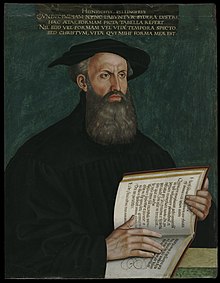*This post is the latest in a series looking at the Sabbath. Previous posts include: Where is the Sabbath in the Early Church (Part 3), Where is the Sabbath in the Early Church? (Part 2), Where is the Sabbath in the Early Church? (Part 1), Ecclesiological Implications of the Sabbath (Part 2), Ecclesiological Implications of the Sabbath (part 1), Sabbath Typology and Eschatological Rest, Paul and the Sabbath, Jesus and the Sabbath, The Sabbath and the Decalogue in the OT, a look at God’s Rest as Prescriptive, an examination of the Sabbath as a Creation Ordinance.
Introduction
The English Puritans were not the first Sabbatarians. Not all historians would agree with that statement. Some have argued that sabbatarianism is perhaps the only true addition of English Puritans to the Reformed tradition.[1] Others more explicitly limit rigorous Sunday observance as, “a peculiar development of the English and Scottish Reformation, being unknown on the continent even among Calvinists.”[2] This idea goes back at least to Peter Heylyn, whose interpretation has influenced many other studies of English Puritanism.[3] However, the English Puritans were not novel in their understanding of the Lord’s Day as the “Christian Sabbath.” Instead, as will be shown, the English Sabbatarians were teaching the similar Sabbatarian doctrine as some earlier reformers. In order to demonstrate a doctrinal connection between the English Puritans and their earlier reformed brothers, I will examine the thought of several reformers and compare their Sabbatarian teachings to Nicholas Bownde in order to show some continuity in their sabbatarian thought.[4] Today’s Post will begin with Heinrich (Henry) Bullinger.
Heinrich Bullinger
Biography
Heinrich Bullinger (1504–1575) was a competent theologian who showed much promise even early in his career.[5] After the death of Zwingli in October 1531, Bullinger was invited to take over as the head of the Reformed church in Zurich. Despite his disagreements with the Lutherans and the church in Geneva, his position and theological acumen made him an influential figure in the second generation of the Reformation.
Bullinger’s Influence in England
Bullinger’s impact on England was direct and evident, initially even more so than Calvin: “Bullinger’s 124 books, not counting his thousands of tracts and letters, were initially in greater demand than Calvin’s… Bullinger’s works were widely circulated in England some thirty to thirty-five years before Calvin’s…Indeed, throughout the sixteenth century, Bullinger was the most read Continental Reformer in England.”[6] Patrick Collinson states that Bullinger, along with Peter Martyr, “Represented the center of theological gravity” in the Elizabethan Church, even more so that Calvin’s Institutes.[7]
Certainly Bullinger’s most influential work was his Decades; this collection of a series of fifty sermons was printed in Latin in England starting in 1551, and the first English translations were published in the mid 1580s.[8] Single sermons and various parts of the Decades had appeared in English as early as the 1540s.[9] Another evidence of the huge impact of his Decades is that in 1586 the Archbishop of Canterbury, John Whitgift, mandated that those,
Junior clergymen and those wishing to be licensed as public preachers who did not have a theological education were told to procure a Bible, a copy of Bullinger’s Decades, and a black-paged exercise book. The Archbishop then told the candidates that they must read a chapter of the Bible everyday, making notes of what they had learned in their exercise book. Each week, they should read through one of Bullinger’s books and make appropriate notes on what they had learned; then, once a quarter, they met with their tutor to discuss their reading and notes and receive his further instructions.[10]
Although Bullinger’s influence in England was eventually overshadowed by Calvin’s, two of his doctrines remained ingrained in Puritan theology: his teaching on the covenant and his linking of Sunday with the Old testament Sabbath.[11] It is to his sabbatarian teachings that we will now turn.
Sabbatarian Theology
Found within Bullinger’s 350-page exposition of the Ten Commandments, his sermon “Of the Fourth Precept of the First Table” gives readers the clearest explanation of Bullinger’s sabbatarian theology. Bullinger taught that the Sabbath is creation based, universal, perpetual, moral, and partly ceremonial.
The Sabbath is creation based. For Bullinger, the Sabbath began when God rested on the seventh day: “and the seventh day he rested, and ordained that to be an appointed time for us to rest in. On the seventh day we must think of the works that God did in the six days…we must consecrate to him all our words and our deeds.”[12] Just as God did not spend the seventh day idle, but continuously preserved the world, so also “we upon that day must rest from handy and bodily works, but we must no cease from the works of well doing and worshipping God.”[13] For Bullinger, the Sabbath pattern was set into the very creation of the world. More than just the rhythm of rest and work, Bullinger’s conception of Sabbath rest imitated the very actions of God toward His creation.
In the next post I will continue to look at Bullinger’s Sabbatarian theology in order to demonstrate that the doctrine of the Sabbath was not a Puritan invention.
[1]E.g., M. M. Knappen describes the Puritan Sabbatarian doctrine as, “a bit of English originality and is the first and perhaps only important English contribution to the development of Reformed theology in the first century of its history.” M. M Knappen, Tudor Puritanism: A Chapter in the History of Idealism (Chicago: University of Chicago Press, 1966), 442; Soldberg also states, “Sabbatarianism became a distinguishing characteristic of Puritanism as early as the 1590s,” Winton U Solberg, Redeem the Time: The Puritan Sabbath in Early America (Cambridge: Harvard University Press, 1977), 59.
[2]F. L Cross and Elizabeth A Livingstone, The Oxford Dictionary of the Christian Church (Oxford; New York: Oxford University Press, 2005), s.v. “sabbatarianism”.
[3]Kenneth L. Parker, “Thomas Rogers and the English Sabbath : The Case for a Reappraisal,” Church History 53, no. 3 (September 1, 1984): 332n2. Parker lists many works that adopt this interpretation: Thomas Fuller, The Church History of Britain, 6 vols. (Oxford, 1845), 5:219; Jeremy Collier, An Ecclesiastical History of Great Britain, 9 vols. (London, 1852) 7:190; M. M. Knappen, Tudor Puritanism (Chicago, 1970), p. 442; Christopher Hill, Society and Puritanism in Pre-Revolutionary England (London, 1964), pp. 146–218; Winton Solberg, Redeem the Time (London, 1977), pp. 27–80; Richard Greaves, “The Origins of English Sabbatarian Thought,” Sixteenth Century Journal 12 (1981):19–34; Keith Sprunger, “English and Dutch Sabbatarianism and the Development of Puritan Social Thought, 1600-1660,” Church History 51 (1982):24–38.
[4]I chose Bullinger and Bucer because they were the “two continental contemporaries of Calvin who exerted the most significant influence upon English Reformers” (See Primus, Holy Time, 134). I am comparing their thought to Bownd’s because his work is the most influential of the early English Puritan works on Sabbatarianism (more on his influence below).
[5]For a good summary of Bullinger’s life and work, see: Bruce Gordon, “Heinrich Bullinger,” in The Reformation Theologians: An Introduction to Theology in the Early Modern Period, ed. Carter Lindberg, The Great Theologians (Oxford; Malden, MA: Blackwell Publishers, 2002), 170–183.
[6]Heinrich Bullinger, The Decades of Henry Bullinger, ed. Thomas Harding, vol. 1, 2 vols. (Grand Rapids, MI: Reformation Heritage Books, 2004).
[7]Menna Prestwich, International Calvinism, 1541-1715 (Oxford: Clarendon Press ; New York, 1985), 214–15.
[8]Bullinger, The Decades of Henry Bullinger, 1:LXVIII.
[9]Ibid., XCIX.
[10]Ibid., LXVI, XCIX.
[11]Ibid., XIV.
[12]Ibid., 2.4.259. Citations from the Decades follow the pattern: Decade number. Sermon number. page number.
[13]Ibid.


















